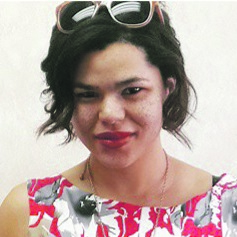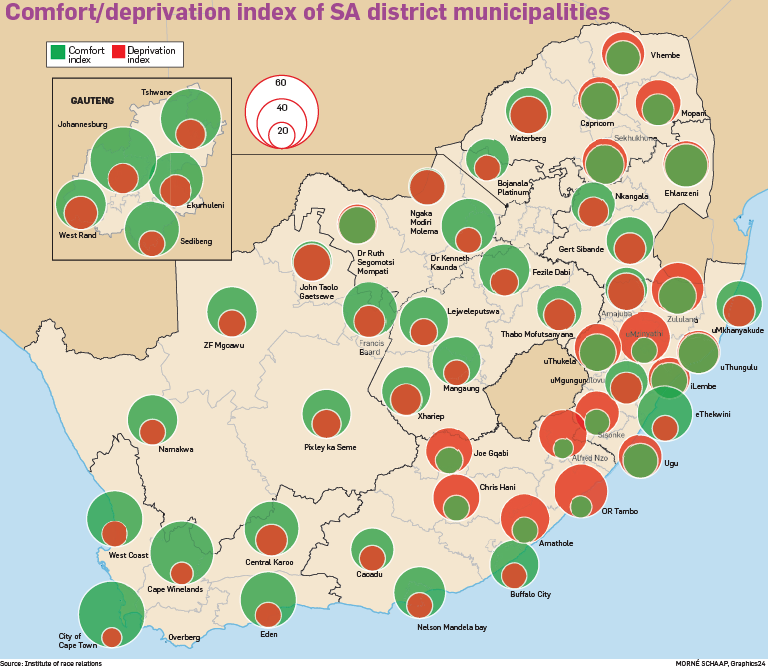
The flames that jolted South Africa and focused attention on Tshwane last week have everything to do with the green and red circles on this map. Ferial Haffajee explains
Green for comfort; red for deprivation. That’s how to read this map of relative comfort and deprivation across South Africa’s districts and cities.
If, like me, you assume comfort means middle class, you’re wrong, so do not get excited at all the green. The red is scary and sad: it shows where South Africans are deprived of the very basics.
“What struck us was the sheer number of people without the most basic services,” says Gabriela Mackay of the SA Institute of Race Relations, who led the analysis.
She used a deprivation index that included people with no schooling; a high unemployment rate; no access to a toilet; and a monthly income of R1 600 or less.
If you look at the red dots on the map, that is significant deprivation for a middle-income country and tells a story of a huge income gap.
The definition of comfort is an almost austere one, except for income, which is quite high. The people in the green are those with a fridge; who have electricity and a flush toilet; an individual monthly income of R25 601 or more; and higher education.
This index excludes third-tier local councils, where the picture is likely to be more red than green, especially in rural South Africa.
The six metropolitan councils or cities that are being most tightly contested in the election are also relatively much more comfortable.
This suggests people get more politically demanding as they become more comfortable. Or, it could suggest higher levels of “relative deprivation” because areas of significant wealth nestle close to those of deep deprivation.
Tshwane, up in the left corner, is interesting. It has a high level of comfort, according to the institute’s definitions, but it burnt last week.
The unrest was fuelled immediately by political contestation for who would wear the mayoral chain, but is there more at play? Let us take a look.
The capital has a population of 3.1 million people, who are well-educated by national standards – that is the effect of a large civil service. However, competing with this is a very high unemployment level of 27.5% at the official rate – but which is probably much higher if you take account of people who have stopped looking for work.
The angry young people who dominated the airwaves and some television screens last week are possibly part of that cohort.
Using the institute’s definition, 38% of Tshwane residents earn less than R1 600, including social grants. So now, the flames make more sense. Far fewer people are middle class.
Unemployment and poor education drive deprivation, says Mackay. “While service delivery is a suitable indicator of performance, employment is an equally fitting pointer.”
Our joint challenge as a society is to blanket this map in green over the next five to 10 years. Otherwise, the events of last week suggest that it will burn bright orange instead.
TALK TO US
Are you comfortable or deprived?
SMS us on 35697 using the keyword FLAMES and tell us what you think. Please include your name and province. SMSes cost R1.50




 Publications
Publications
 Partners
Partners









